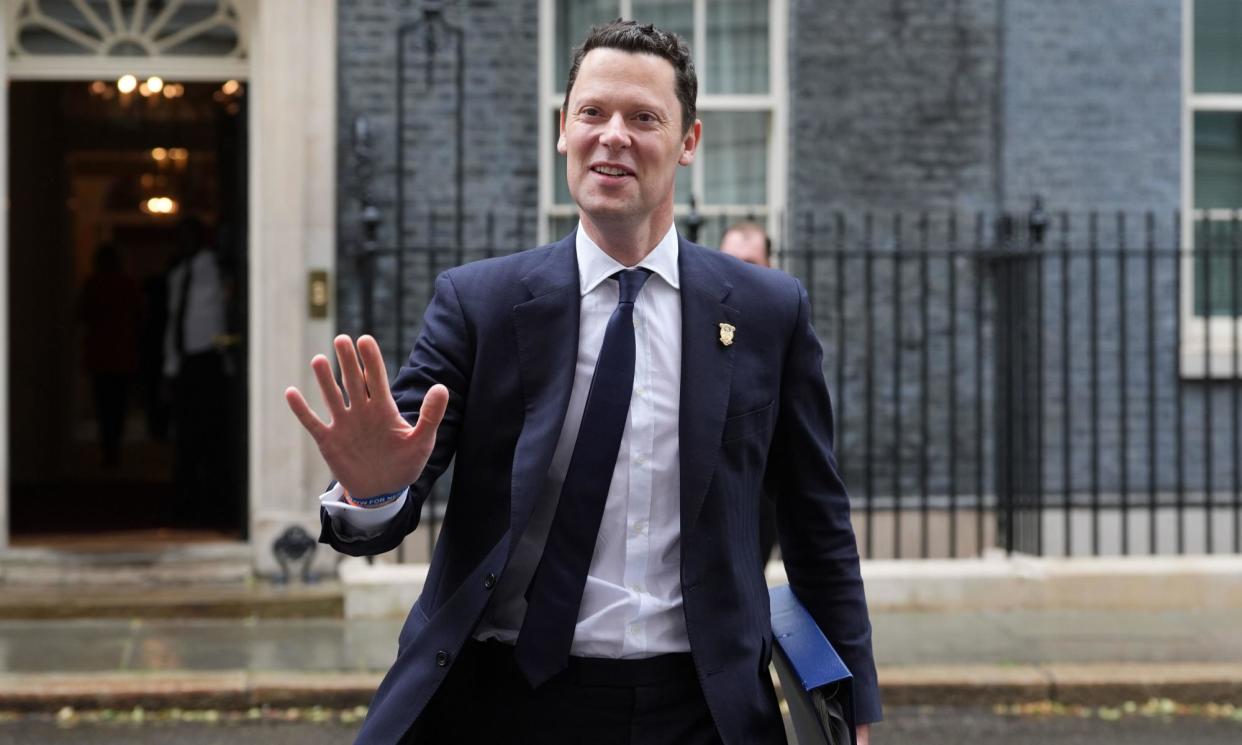Lawyers take lord chancellor to high court over legal aid fees

The lord chancellor is being taken to the high court over claims that legal aid fees are so low they are preventing lawyers from providing representation for thousands of people who are eligible for it.
The challenge focuses on access to legal aid for immigration and asylum lawyers. It is being brought by Duncan Lewis solicitors, one of the largest providers of civil legal aid in this area.
It accuses the lord chancellor – the role currently occupied by Alex Chalk – of a failure or refusal to raise the rates for what is known as “controlled work” – legal aid work in the immigration and asylum field.
Demand for this legal assistance far outstrips supply, with the thousands of people no longer able to access legal aid including unaccompanied asylum-seeking children, victims of domestic and sexual violence, and victims of torture or trafficking.
Lawyers and NGOs working in the civil legal aid area say the government is aware of the problems because they have provided a great deal of evidence in response to various consultations setting out what they say are the “devastating consequences” of inadequate legal aid.
High court challenges against the person in charge of the courts are unusual. The president of the Law Society, Nick Emmerson, warned: “The civil justice system is in a precarious state and ultimately the ones who will suffer are those trying to seek justice.”
Many lawyers doing this work have repeatedly raised concerns about what they say are unsustainable rates for civil legal aid work, which have not been increased since 1996, equating to a drop in real terms of 48%. Along with asylum and immigration, housing and welfare legal advice are affected.
Bodies including the National Audit Office, parliament’s justice committee and public accounts committee, and the UN human rights committee have all recommended that the lord chancellor raise rates in order to help resolve the issue.
Jeremy Bloom, of Duncan Lewis solicitors, said: “It is heartbreaking for us, but over the last five years we have had to make massive reductions in the number of legal aid asylum claims and appeals that we take on. Legal aid will never be wildly profitable, and that’s OK. But providers of legal aid cannot continue taking on work that causes financial losses. It is not sustainable, and the losers are the people who need representation.”
Last year, the government embarked on a major civil legal aid review. A green paper is supposed to be published this summer, but there are fears the election has pushed this into the long grass.
Duncan Lewis has calculated an average annual loss of £777,038 between 1 April 2020 and 31 March 2023 on controlled work on immigration and asylum legal aid cases, based on the fees recovered for the work compared with the costs to the firm of undertaking the work, which includes salaries, overheads and supervision costs.
The Ministry of Justice said it was unable to comment on ongoing legal proceedings.

 Yahoo News
Yahoo News 
